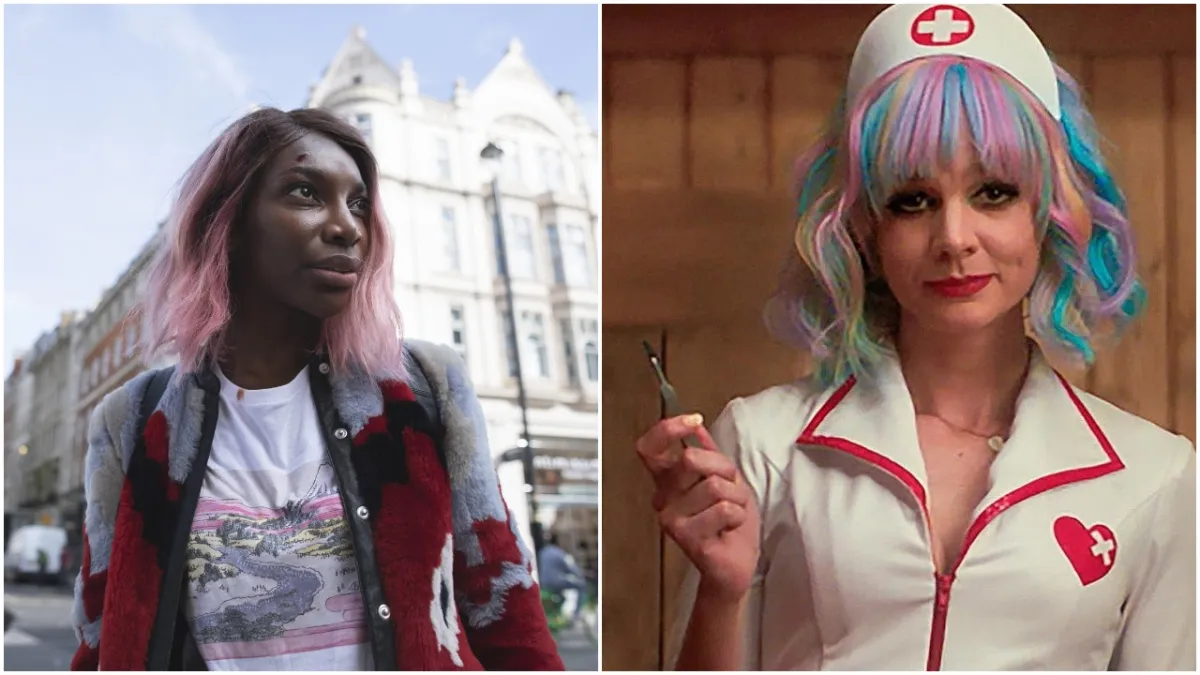SPOILER ALERT: This piece discusses plot points from I May Destroy You and Promising Young Woman, but does not delve into their endings. Also a Content Warning: this article discusses sexual assault.
How do you tell a story about rape? It’s an impossible question that film and television have struggled to answer, how to toe the line between showing the horror of assault without the titillation. It’s a balance between being unflinching and being exploitative. It’s also a world that has largely been the purview of male writers, directors, and producers.
Thanks to the male gaze, a rape storyline is often treated as a salacious bit of nastiness designed to shock the audience, as we’ve seen in shows like Game of Thrones. Or, it’s an inciting incident that functions to propel a man down the path of revenge, as we’ve seen in Death Wish and its ilk. Sometimes, the survivor takes revenge into her own hands as in I Spit on Your Grave, where a woman methodically dispatches her assaulters. It’s a classic cinematic shorthand: wounded woman + big gun = justice served.
So how, in a post-Me Too landscape, can you tell a compassionate and nuanced story of sexual assault? The first step is mind-bogglingly simple: let women tell the story. 2020 has given us two wholly unique and heartbreaking explorations of sexual assault, and in doing so has delivered the best television series AND the best film of the year.
HBO’s critically acclaimed series I May Destroy You and Focus Features’ Promising Young Woman each explore the traumatic aftermath of sexual assault in intersecting ways. And it’s no coincidence that both pieces are written and directed by women. Michaela Coel (Chewing Gum) wrote and co-directed (with Sam Miller) I May Destroy You, which is based on Coel’s own assault.
I May Destroy You stars Coel as Arabella, a London writer and social media star who struggles to move on following an assault that occurred after her drink was spiked. The series unfolds like a mystery, following Arabella’s POV as she pieces the events of the evening together and faces her own trauma. But while she struggles to come to terms with what happened, her friends are undergoing their own struggles with consent and sexuality.
Promising Young Woman, written and directed by Emerald Fennell (who recently played Camilla Parker-Bowles on The Crown), is a dark comedy thriller that subverts the idea of a rape revenge movie. Carey Mulligan plays Cassandra, a med school dropout who spends her nights pretending to be drunk at night clubs, waiting for predatory men to take her home. Once there she confront them, completely sober, and shames them for trying to take advantage of her. Cassandra’s pain comes is rooted in her best friend’s sexual assault, and the misogynist systems in place that protect the reputation of the rapist over the trauma of the survivor.
The assaults at the center of both PYW and IMDY are thankfully offscreen. We only hear audio of the attack in PYW, while IMDY plays the scene in split-second images like a half-forgotten memory. Because both pieces are not about the assaults themselves, but the aftermath. The series and the film delve into the ripple effects of trauma, and how that rage and fear spread throughout every aspect of the protagonist’s lives.
No job, no friendship, no romance escapes the poisonous experience. The assault embeds itself in each woman’s psyche, propped up by an uncaring world that urges them to move on without offering any kind of closure or revenge. There’s no apology to be had, no righteous moment of violent revenge that wipes the slate clean. And while the response from the authorities in each story vary wildly (Coel is met with kind, empathetic police officers, while Cassandra is met with indifference), neither offer the justice and absolution the women seek.
You would think this would make for a dour, punishing viewing experience, but both IMDY and PYW have sly moments of comedy and joy throughout. Both are also rich with style as portrayed through art direction, cinematography, and costuming. Arabella’s hair and wig changes often function as a visual barometer of her mental state. And the candy-coated Barbie-pink world of Promising Young Woman belies a poisonous center. They function as hallmarks of womanhood as jammed through a funhouse filter.
Above all, both Coel and Fennell treat sexual assault in a way that no male writer/director has achieved. Not as a plot point or a stepping stone to the next set piece, but as an ongoing experience that has the ability to both re-traumatize and heal. The women at the center of these stories are haunted by the assault, wearing it like a ghost wrapped in a weighted blanket. They are at times both free from and suffocated by their trauma. It lives and breathes with them, a monster that cannot be wholly vanquished, but can be managed with varying degrees of success.
Neither I May Destroy You nor Promising Young Woman give their protagonists catharsis or a neatly tied up ending. Instead, they offer a deeply empathetic portrait of multi-faceted trauma, and a wholly new way to tell a story of assault. In doing so, both stories deliver some of the freshest, most breathtaking viewing experiences of this year, let alone of the decade.
When it comes to excavating trauma and deep discomfort with compassion and understanding, the future is most assuredly female.
(featured image: HBO/Focus Features)
Want more stories like this? Become a subscriber and support the site!
—The Mary Sue has a strict comment policy that forbids, but is not limited to, personal insults toward anyone, hate speech, and trolling.—










Published: Dec 20, 2020 04:25 pm